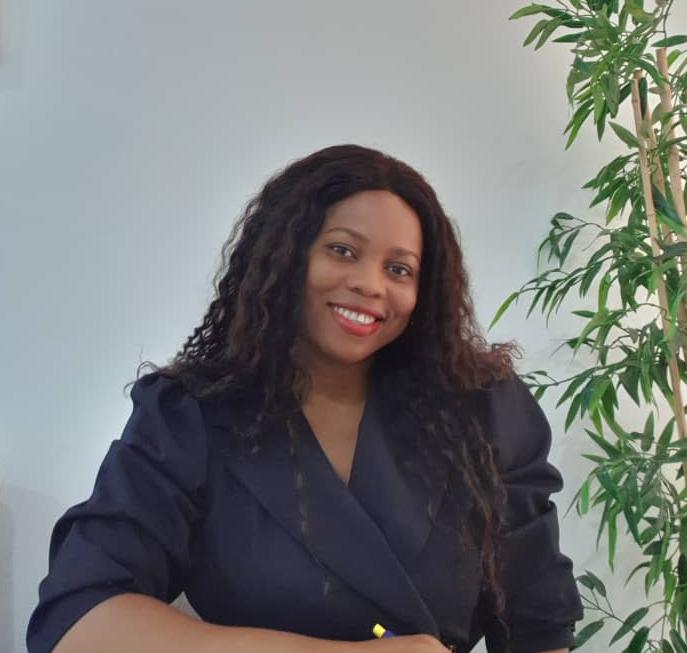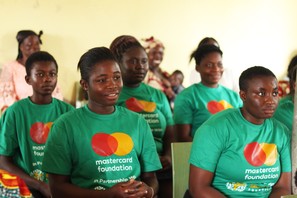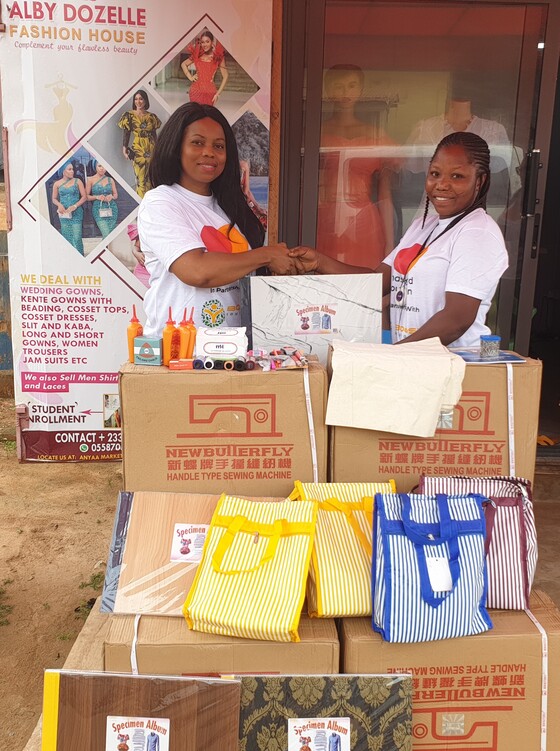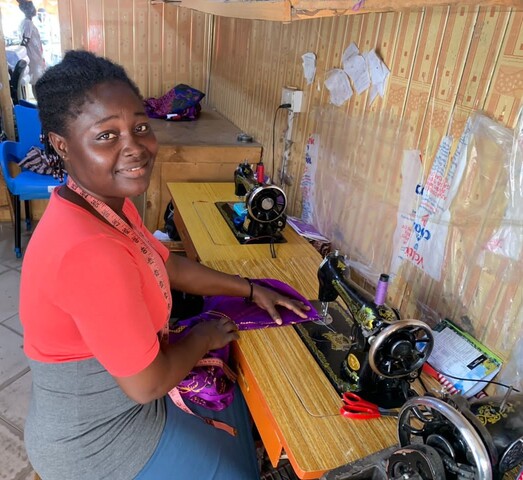In Ghana’s capital, Accra, women who were once overlooked by society are now sewing their way to independence. Behind this change is Dr Cynthia Uchechi Ohajionu Addae, a Ghanaian–Nigerian educator and social entrepreneur, and the founder of Boost Foundation, a non-profit that empowers vulnerable women, youth, and people with disabilities.

Dr Cynthia Uchechi Ohajionu Addae, founder of Boost Foundation, leads programmes that equip Ghana’s women and youth with practical skills and opportunities for income generation.
“Our goal wasn’t just to train people; it was to restore dignity,” she said. “When women are given the tools and trust to rise, they don’t just lift themselves, they lift entire communities.”
One of Boost’s key initiatives, the Sua Adepam Project — which means “Learn a Skill” in Akan — was launched with the Mastercard Foundation to train disadvantaged women and youth in fashion design. Participants received sewing machines, stipends, and full coverage of training fees, removing financial barriers and giving them a practical way to start earning.

Participants of the Sua Adepam Project during a training session supported by the Mastercard Foundation and Boost Foundation. The initiative provides skills training, stipends, and equipment to help women build sustainable livelihoods.
Training also emphasised confidence-building. An informal monthly fashion show encouraged participants to share photos of their creations, with the best designs receiving recognition. “It built their confidence and encouraged them to push their creativity further,” Dr Cynthia said.
From Vision to Action
Boost Foundation was shaped by what Dr Cynthia observed on the streets of Ghana. She saw the struggles of the Kayayei — women who work as head porters, often carrying heavy loads and caring for their children while navigating busy markets. Many had left rural areas hoping for better opportunities, only to face long hours and little pay.
She believed that with the right skills and resources, their lives could be different. Drawing from her years of lecturing in Malaysia and Turkey, she designed programmes that combined vocational training with immediate tools and support. “We wanted people to leave our programmes not only trained, but equipped to take the next step,” she said.
Boost engaged experienced trainers who could serve as mentors and work closely with local artisans and small businesses to help graduates enter the market swiftly.
Nurturing Young Entrepreneurs
While working with women, Dr Cynthia observed another gap: young people had ideas but lacked the support to develop them. In response, she launched Ghana’s Ultimate Entrepreneur Competition (GUEC), inviting youth to pitch solutions to real challenges.
Some ideas stood out, including biodegradable packaging made from agricultural waste and solar-powered water pumps for rural areas. “Ghana wasn’t short of talent; we lacked the system to nurture it,” she said.
GUEC later led to the establishment of the West African Centre for Business Innovation and Incubation (WACBII), a registered incubator offering technical support, mentorship, start-up assistance, and product commercialisation. Among its ventures was a coconut-processing company that produced milk, water, flour, oil, chips, and cake for local and international markets. Boost continued seeking funding to support its expansion into export markets.
Lessons from INTI
Dr Cynthia’s leadership was also shaped by her time at INTI International University in Malaysia, where she earned her Master of Business Administration (MBA) in International Business in 2012 and her Doctor of Philosophy (PhD) in Business Administration in 2016.
“INTI had such a diverse student community. Working with people from different cultures taught me how to collaborate across perspectives and communicate effectively,” she said. “It made me more confident in leading people from different backgrounds.”
Her studies went beyond theory. “We worked on real business challenges for actual companies, which prepared me to lead with both vision and practicality,” she said. Adjusting to INTI’s teaching style, which is less exam-driven and more application-based, encouraged her to think critically and apply her knowledge in real contexts.
She also recalled the personal touches that made Malaysia memorable: classmates who helped her settle in, lecturers who offered guidance, and a campus that welcomed diversity. “Malaysia didn’t just shape how I thought; it shaped my identity,” she said.

A participant receiving a sewing machine and starter tools from Boost Foundation, enabling her to begin earning immediately after completing her training.
Looking Ahead with Purpose
Boost Foundation is continuing to expand its programmes. Training now includes digital skills, hairdressing, baking, and graphic design. A digital learning platform is being developed to reach rural communities, and fully equipped training centres are planned for multiple regions, many of which will be run by programme graduates.
Partnerships remain central to this work. Dr Cynthia also encourages fellow INTI alumni to share their expertise, lead workshops, or sponsor participants. “We were building a movement, and movements need people,” she said.
For her, the most rewarding moments come from seeing change up close. “When I saw someone go from feeling invisible to standing tall with skills, confidence, and hope, that’s what kept me going,” she said.
From bustling markets to a growing network of training centres and start-up hubs, Dr Cynthia’s work through Boost Foundation shows how skills, support, and opportunity can create meaningful change

A beneficiary of the Sua Adepam Project working at her sewing station, demonstrating the programme’s focus on confidence-building and self-reliance.